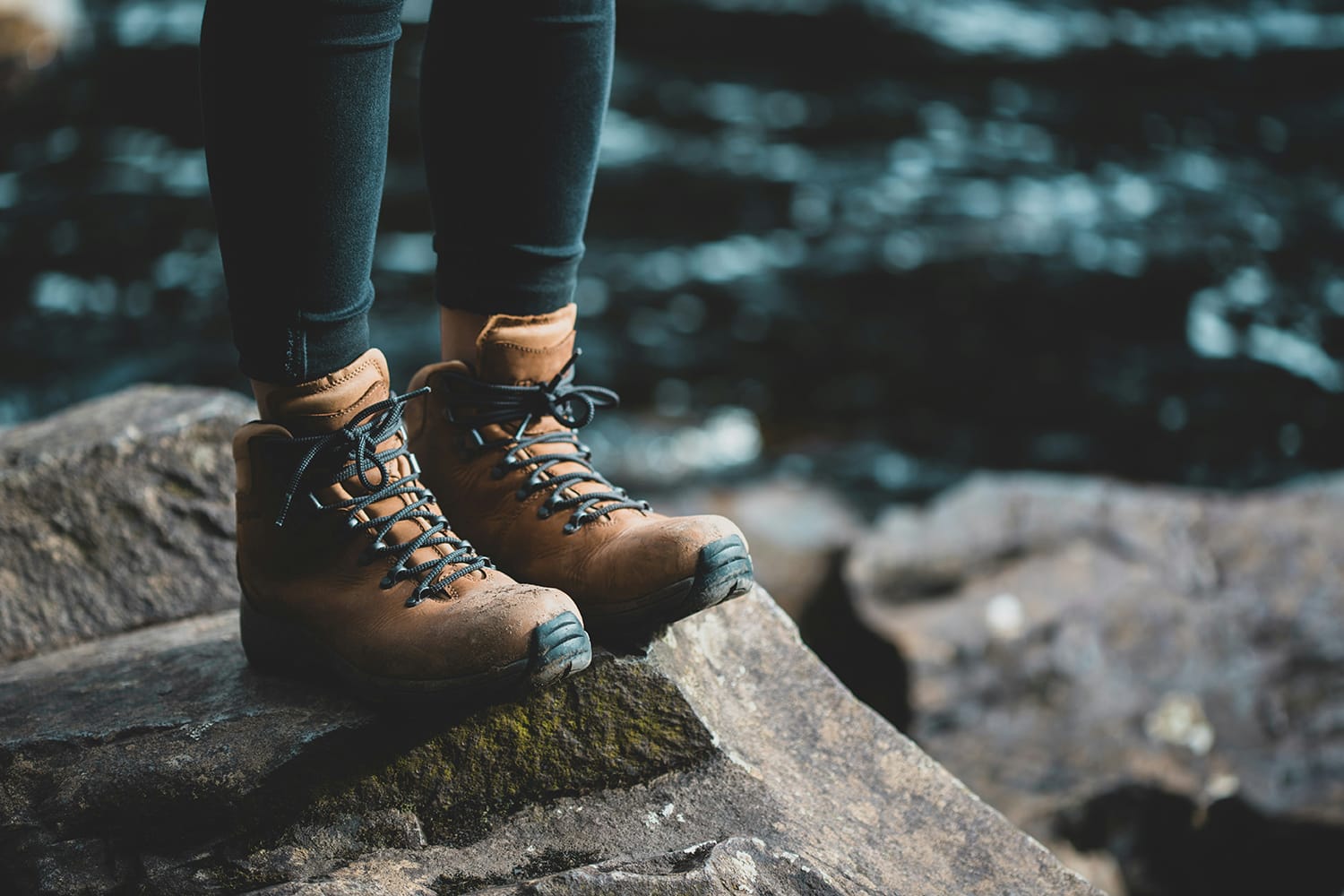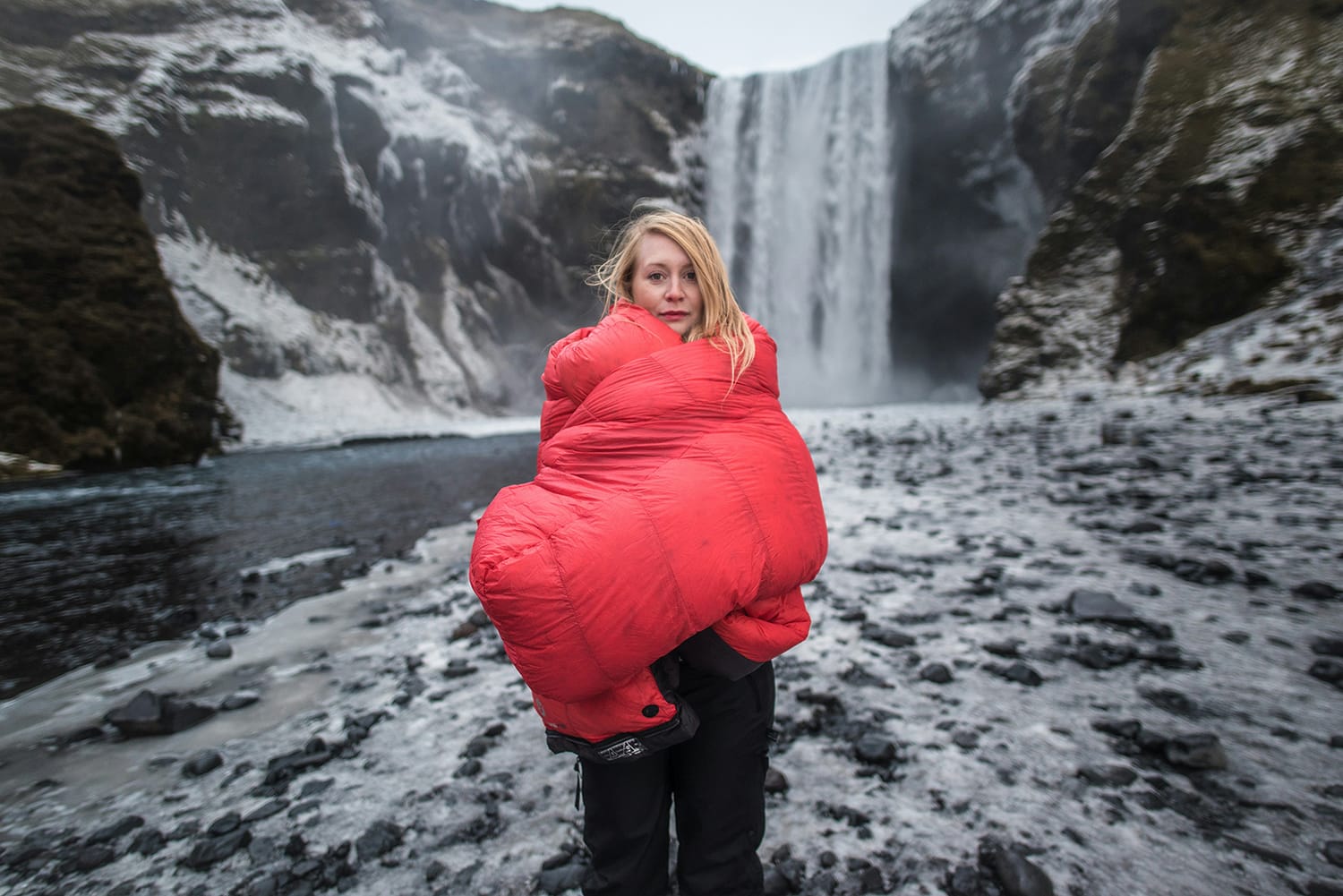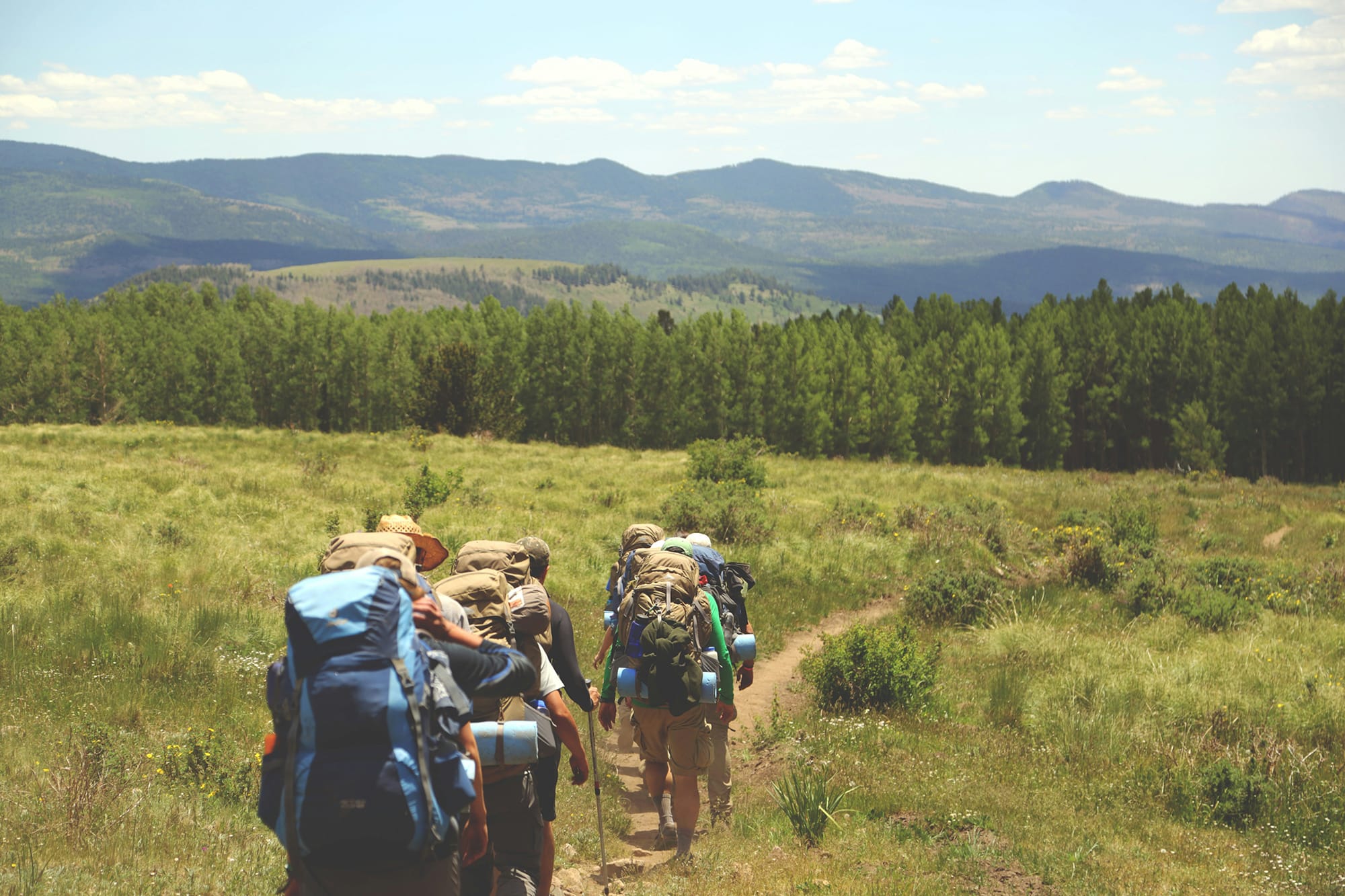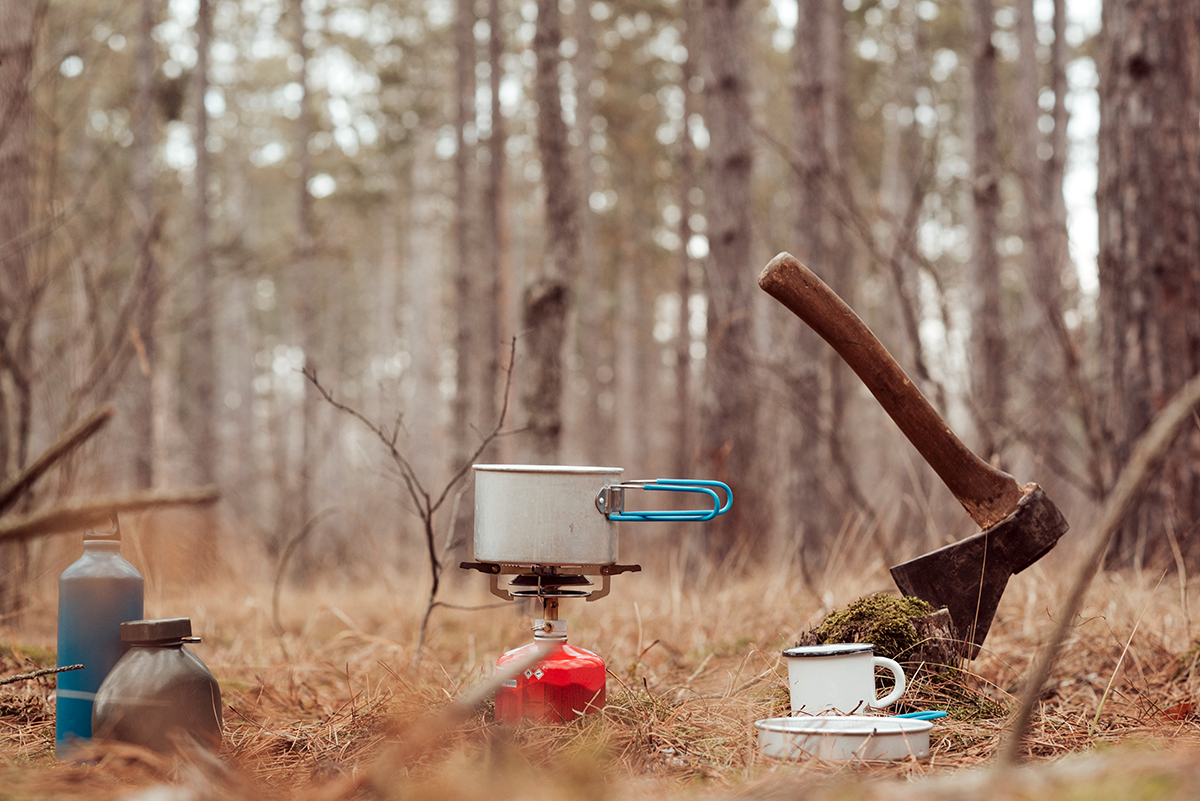Most of us are familiar with the rules of etiquette that help maintain respect and harmony in our daily lives. But when you venture into the great outdoors, a whole new set of unwritten rules comes into play. Knowing and following these principles not only helps you blend in with your natural surroundings but also contributes to the blissful, harmonious vibe that many hikers seek.
1. Embrace Silence
The wilderness offers its own symphony – the gentle rush of a river, the wind rustling through trees, birdsong. These are the sounds that draw us to nature. However, playing loud music from a speaker on the trail or in camp, or engaging in boisterous behavior, disrupts the serene atmosphere. Remember that sound travels far when there are no walls to contain it. As evening falls and fellow campers settle in, reduce noise to a whisper. If you’re an early riser, don’t assume others are on the same schedule. Speak softly and keep your torchlight away from sleeping faces. Minimise rustling in the morning by preparing as much as possible the night before.
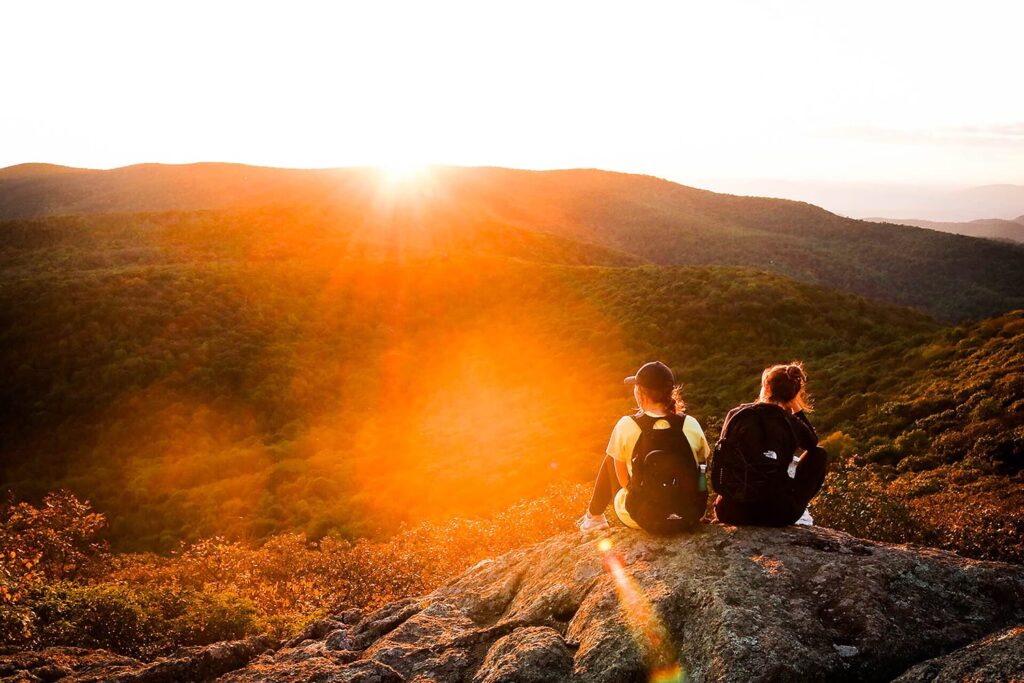
Photo by Brayden Winemiller on Unsplash
2. Respect Personal Space
In the great outdoors, there may be no walls, but it’s helpful to imagine some boundaries. While some hikers enjoy friendly chats, others seek solitude and a connection with nature. Before striking up a conversation or joining other hikers on the trail, gauge their preference. The same principle applies at camp. It’s common sense, but to be clear, set up your tent at a respectful distance from others, allowing for as much visual and sound privacy as possible.
3. Trail Courtesies
When overtaking someone on a singletrack, offer a friendly greeting and ask for permission to pass. Avoid sneaking up and surprising fellow hikers. It’s especially crucial to yield to hikers heading uphill as they need to maintain their rhythm. Keep your phone on silent to avoid disrupting the peace with constant alerts. Be extremely considerate if you’re using a drone, as their noise can be invasive and bothersome to others.
4. Care for the Environment
Hikers explore nature because they love it, and loving it means taking care of it. Leave no marks behind. Do not carve personal inscriptions into trees and rocks, avoid breaking branches or picking wildflowers, and refrain from building stone stacks that disturb animal habitats. Give wildlife plenty of space, as human encounters can be stressful for them and disrupt their natural activities. Stick to established trails to prevent plant disease and erosion, including avoiding shortcuts on zigzag trails and refraining from circumventing puddles, which only enlarges them and creates new trails.
5. Sharing is Caring
Camping areas may have limited space, so choose your spot thoughtfully and resist spreading your gear too widely. If there are shared facilities, be prepared to share them. Don’t monopolize picnic tables or relaxation areas; after cooking your meal, pack up and free up space for others. If there’s a river in the camp, avoid washing items upstream from where people collect water.
6. Leave No Trace
The golden rule in the outdoors is to leave no trace. Carry out all your trash, including organic waste like fruit peels and eggshells. When washing, use water away from rivers and lakes to prevent pollution. Avoid spitting toothpaste near water tanks; instead, brush your teeth away from water sources.

Photo by Wojciech Then on Unsplash
7. Keep it Tidy – Huts & Shelters
The concept of leaving no trace applies indoors too. In backcountry huts, remember there’s no cleaning crew on the way to tidy up after you. Wipe down tables, sweep the floor if a broom is available, and don’t leave food scraps or trash that could attract vermin.
8. Preserve Valuable Resources
Take pride in your handy five-liter water bladder or camp shower, but be mindful of loading it up to the max, especially when your water source is precious tank water. It’s a limited resource, and future hikers might rely on it to quench their thirst. The same principle applies to firewood. While crackling fires are enticing, it’s best to preserve wood for when it’s truly needed. Be frugal with fuel, and if you find that fellow hikers have collected firewood, replenish the stocks where possible for the next weary traveler in need of warmth.
These unspoken rules of hiking etiquette ensure a more enjoyable and harmonious outdoor experience for everyone. By respecting your fellow hikers and the environment, you contribute to the preservation of the natural beauty that draws us all to the wilderness.


